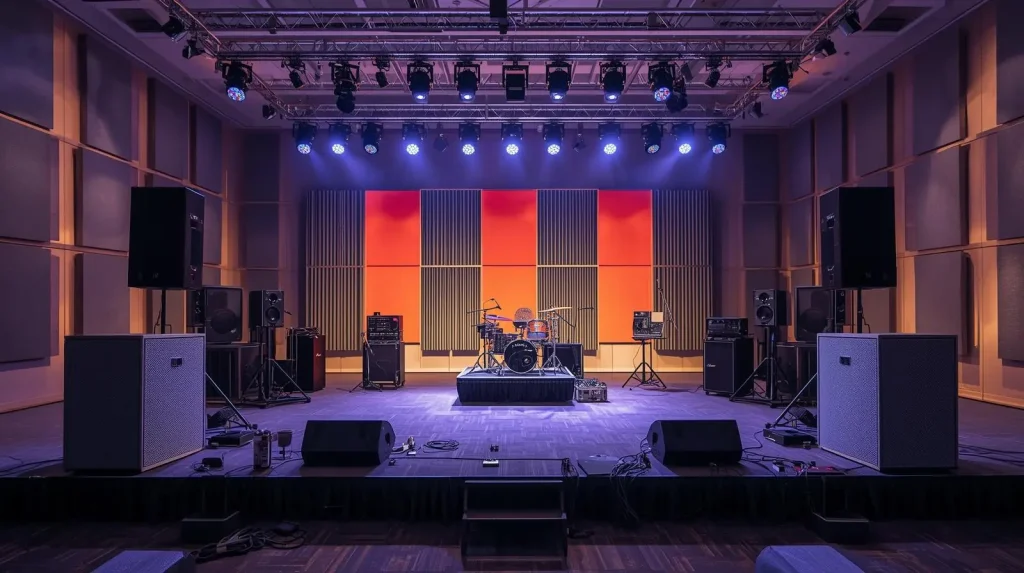Creating a noise-free or low-noise event has become a priority for organizers across conferences, corporate gatherings, weddings, exhibitions, and live performances. As audiences grow more conscious of sound quality and venues become more acoustically complex, event planners must navigate a variety of challenges. Managing noise levels is not only about comfort. It directly affects professionalism, attendee engagement, communication clarity, and the overall event experience.
This blog explores essential acoustic tips that help organizers plan a noise-free event. The goal is to offer practical insights that improve sound control, reduce unwanted noise, and elevate the impact of your event. Whether you are hosting a business seminar or a creative performance, understanding how acoustics work will help you create a more immersive and pleasant environment.
Why Sound Management Matters at Events
Sound is one of the most defining sensory elements of any event. Poor acoustic control can distract attendees, distort communication, and reduce the value of an otherwise well-planned gathering. When sound is properly managed, spaces feel professional, enjoyable, and intentionally designed.
Key reasons noise control should be a priority
- It enhances audience focus throughout presentations and performances.
- It improves speech clarity, which is essential for seminars, conferences, and panel discussions.
- It reduces auditory fatigue that often comes from long exposure to noise.
- It supports venue compliance with city noise regulations.
- It contributes to a premium event experience that feels well curated.
Understanding the acoustic requirements of your event is the first step toward creating a successful and noise-free environment.
Assessing Your Venue for Acoustic Potential
Choosing the right venue significantly influences your event’s sound performance. While many venues look visually impressive, not all are acoustically suitable for noise-free functions. Event organizers should evaluate several sound-related factors before finalizing a location.
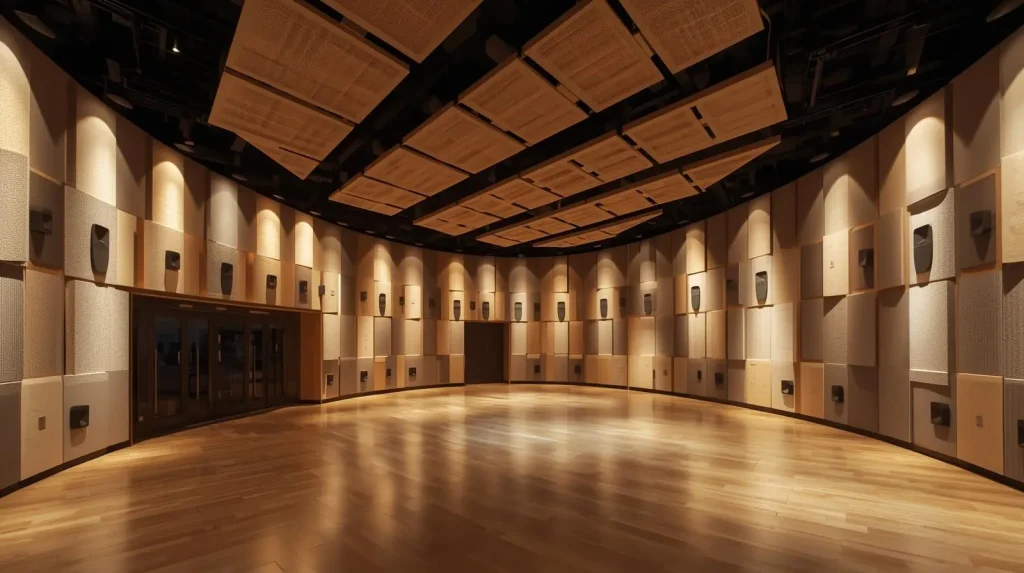
Look at room dimensions and materials
Large open spaces with hard surfaces like marble, concrete, or glass tend to produce echoes and sound reflections. This can make speech unclear and amplify unwanted noise. Rooms with softer materials such as carpets, curtains, and upholstered furniture absorb sound more effectively.
Consider the ceiling height
Very high ceilings often cause sound to travel farther and linger within the room. Low ceilings can trap sound in ways that intensify noise. Understanding how ceiling height affects sound dispersion helps you decide whether your event needs additional acoustic treatment.
Identify noise sources near the venue
Outdoor noise from traffic, construction, HVAC systems, or crowded neighborhoods can infiltrate indoor event spaces. For outdoor events, even small environmental sounds can interfere with audio equipment or guest conversations. It is important to evaluate external noise conditions to determine if you need sound barriers, acoustic panels, or enhanced amplification.
Planning Your Event Layout for Better Acoustics
Beyond the venue itself, your event layout plays a crucial role in controlling noise. Strategic planning helps reduce sound reflections, prevent microphone feedback, and ensure even coverage throughout the room.

Position the stage wisely
The stage or focal point of your event should be placed where sound can travel naturally toward the audience without hitting reflective surfaces first. Avoid placing the stage directly in front of glass windows or structural columns.
Create separate zones for different activities
If your event includes networking areas, exhibition booths, or breakout sessions, designating zones helps contain noise within each space. Acoustic room dividers or portable panels can help maintain a balanced atmosphere without disrupting presentations.
Manage seating arrangements
Well-spaced seating improves sound travel and reduces crowd noise. For corporate events, classroom or theater-style seating helps enhance focus and maintain a quiet environment. For social gatherings, rounded table arrangements can soften noise levels.
Leveraging Soundproofing and Acoustic Tools
Soundproofing and acoustic enhancements are essential for events that require strong noise control, especially when using audio systems or accommodating large audiences.
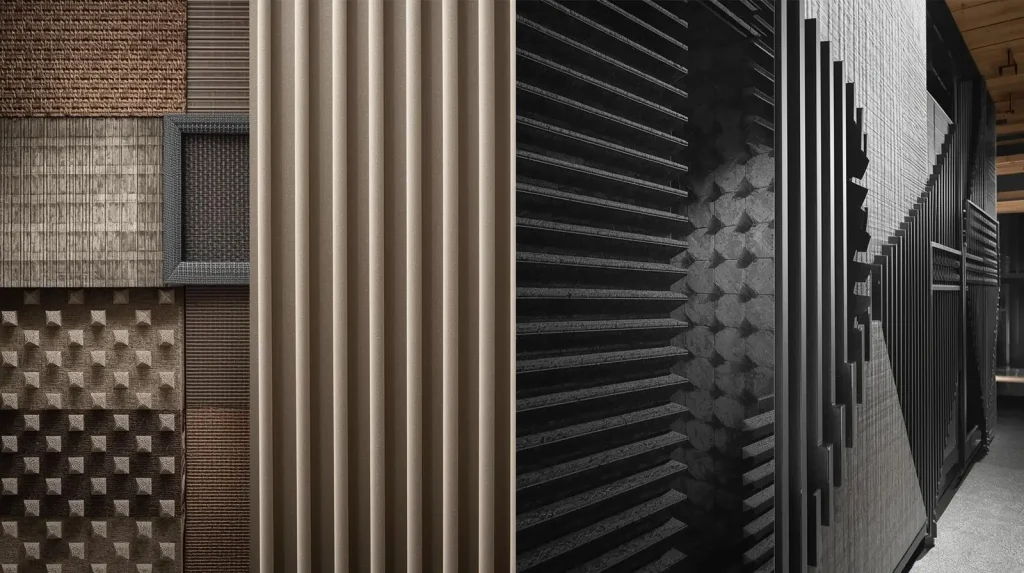
Acoustic panels and wall treatments
Panels absorb sound waves and prevent echoes. They are useful for conferences, workshops, and any event where speech clarity is crucial. Many panel options are easy to install temporarily and can be tailored to your brand’s visual theme.
Bass traps and corner treatments
For events involving music or sound effects, bass traps help manage low-frequency sound waves that often cause rumbling or vibrations. These are particularly useful for entertainment events, live bands, and performances.
Soundproof curtains and drapes
Heavy curtains reduce outside noise and help control reverberation inside the venue. They are ideal for multipurpose halls or open spaces that lack inherent sound absorption.
Portable acoustic partitions
Partitions allow organizers to create quiet zones, private meeting spaces, or sound-controlled demo areas. They are cost effective and easy to reposition during the event setup.
Optimizing Audio Equipment for Noise-Free Events
Even the most acoustically perfect venue needs reliable audio equipment. Proper audio setup ensures clarity, consistency, and a noise-free experience for attendees.
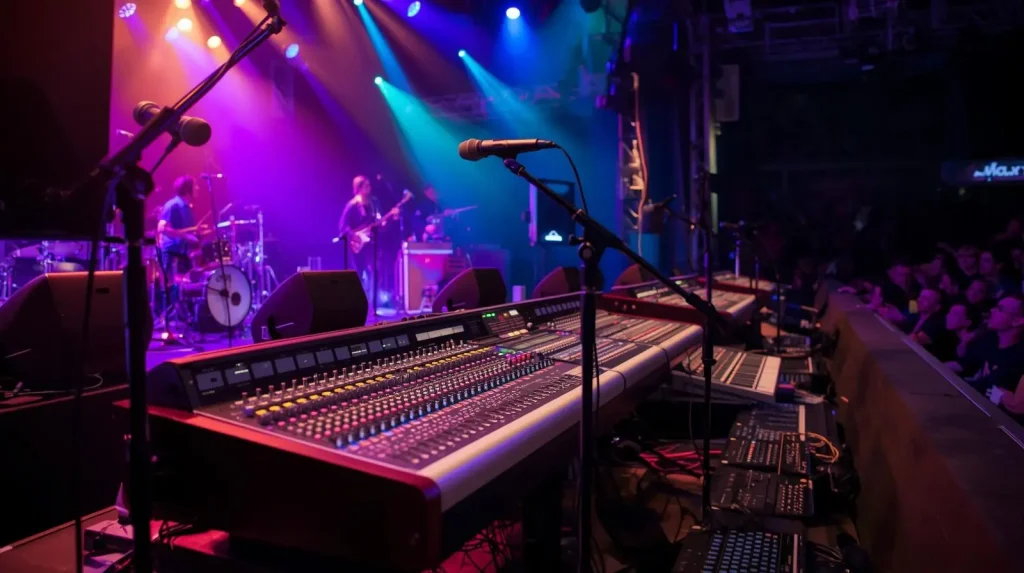
Choose high quality microphones
Directional microphones minimize background noise by picking up sound from a specific source. Wireless lapel mics are great for presenters who move around, while handheld mics are ideal for audience interaction.
Calibrate speakers correctly
Speaker placement affects sound dispersion. Avoid aiming speakers at reflective surfaces and ensure that audio covers the full seating area without overpowering certain zones. Balance is key.
Use sound limiters
Sound limiters help prevent accidental noise spikes, which are common during live events or multi-person panel discussions. They keep the audio at safe and comfortable levels.
Conduct a pre-event soundcheck
Always test microphones, speakers, amplifiers, and mixers before the event begins. Identify feedback points, adjust equalizer levels, and ensure that all audio is synchronized across the room.
Managing Noise During the Event
Even with the best planning, real-time noise management is essential. Organizers should stay alert to any unexpected noise issues and respond quickly to maintain a smooth event experience.
Assign a dedicated sound technician
A professional audio manager can monitor and adjust sound levels, fix technical issues, and ensure consistent quality. This is especially important for large or high-stakes events.
Control crowd movement
High-traffic areas can create noise spikes. Guiding attendees through designated walkways helps manage noise flow and maintain order.
Monitor outside noise changes
Construction, weather shifts, or sudden street activity can interfere with event audio. Being prepared with additional acoustic tools or backup equipment ensures stability.
Why People Trust SoundKrafted.com for Noise-Free Event Solutions
Event organizers looking for reliable soundproofing materials and acoustic solutions often choose SoundKrafted.com because of its expertise and high quality products. Whether you are planning a corporate meeting, a creative performance, or a personal celebration, professional acoustic support can elevate the experience significantly.
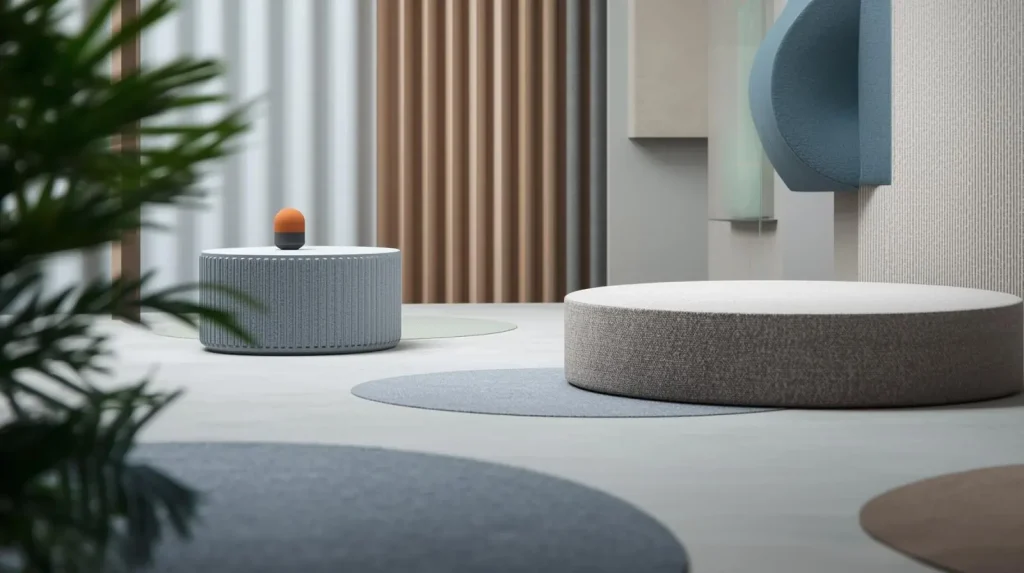
What makes SoundKrafted.com a trusted choice
- A wide selection of soundproofing materials designed for different types of events and spaces.
- Expert guidance that helps you choose the right acoustic treatments for your venue.
- High quality products that balance sound absorption, clarity, and aesthetic appeal.
- Solutions that cater to both temporary event setups and long-term space treatments.
- A commitment to improving acoustic comfort and reducing noise disturbances.
With a focus on practicality, performance, and customer satisfaction, SoundKrafted.com supports event organizers who want to achieve a noise-free atmosphere without compromising design or budget.
Conclusion and Call to Action
Planning a noise-free event requires a thoughtful approach to acoustics, equipment, layout, and real-time management. By assessing your venue, using the right soundproofing tools, organizing your layout effectively, and preparing your audio system in advance, you can create a polished and comfortable event experience. Noise control enhances communication, keeps audiences engaged, and ensures that your event feels professional and well crafted.
If you are ready to improve your event’s acoustics or need high quality soundproofing materials, explore the solutions available at SoundKrafted.com. The right acoustic planning will elevate your event and leave a lasting impression on your attendees.

